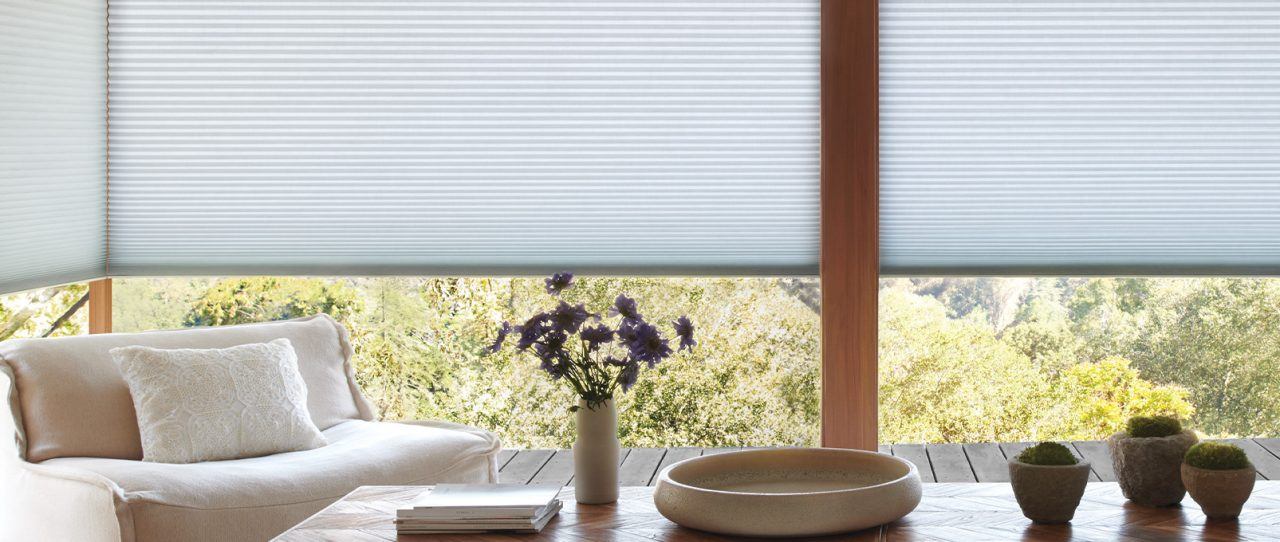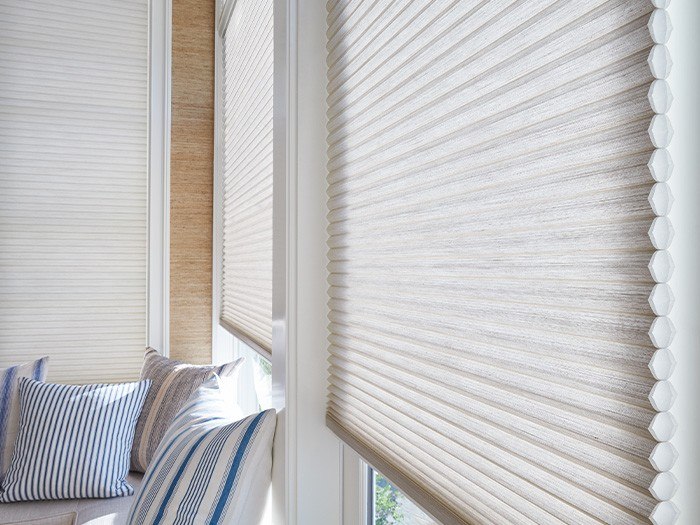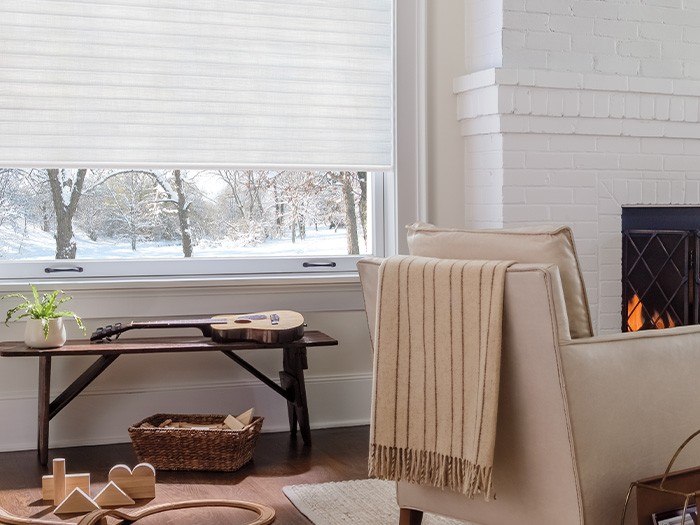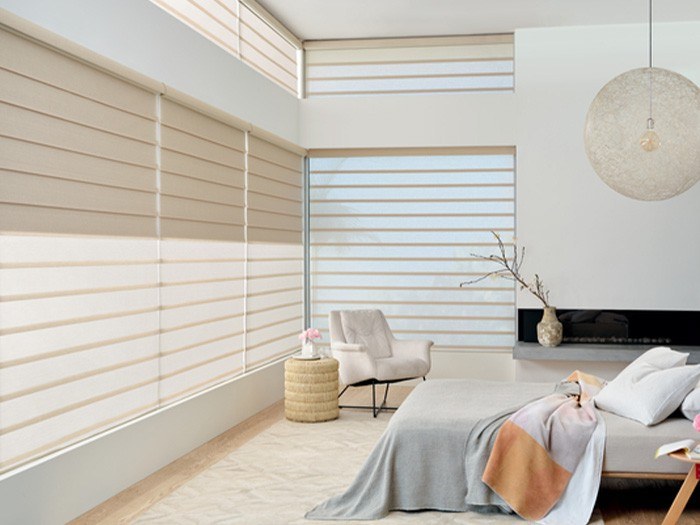
Energy-Efficient Shades
LIVE COMFORTABLY YEAR-ROUND WITH EXTRA INSULATION AT THE WINDOW.
Compared to insulated walls and ceilings, windows easily allow more heat to escape from a room in winter. Winter’s chillier weather doesn’t have to leave Jack Frost nipping at your nose, though. Energy-efficient window coverings, which create a layer of insulation at the window, can go a long way toward keeping more warm air inside your house.
Likewise, when temps heat up, those same window coverings will help your house stay cool during the dog days-a solution that’s a lot easier on your electric bill than cranking up the A/C.
Looking for the best energy-efficient choices? Consider the following trio of window covering styles.
CELLULAR SHADES
Cellular window coverings have a unique, honeycomb design, and are the most energy-efficient window treatment available. Their honeycomb “cell” construction traps air in distinct pockets at the window, so your house stays comfortable when it’s cold.

Duette Honeycomb Shades; Fabric: Alexa Color: Desert Sands
CELLULAR ROLLER SHADES
These window coverings are crafted from two layers of fabric, marrying the clean lines of a classic roller shades with a cellular design. This cellular layer is the key to their energy efficiency.

Sonnette® Cellular Roller Shades: Fabric: Elan® Color: Daisy White
INSULATED ROMAN SHADES
You can also find window coverings that combine the sculpted look of a Roman shade with the construction of a cellular shade. The result? A beautiful, cordless solution for taking a bite out of winter.

Vignette® Modern Roman Shades: Fabric: Loren Color: LightTouch
No matter which energy-efficient window covering style you choose, make sure to open them during the day in winter so that the heat from direct sunlight warms your home, and then close them at night to help retain the heat. (On cloudy winter days, closing your window coverings will keep the warm air in.)
And in summer, close your window coverings shades during the day to prevent the sun’s rays from heating up a room.
